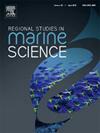Perceptions and adaptive strategies of artisanal fishers to a changing environment
IF 2.1
4区 环境科学与生态学
Q3 ECOLOGY
引用次数: 0
Abstract
Artisanal fishers represent a critical yet under-researched component of small-island coastal economies, where environmental changes threaten both livelihoods and marine ecosystems. Despite increasing global attention to the interaction between coral reefs and fisheries, limited studies have explored the adaptive capacity of fishers to environmental change, especially when losses in fisheries may be inevitable. This study examines the environmental perceptions, adaptive capacities, and behavioral responses of artisanal fishers to changes in marine resources, using the island of Tobago as a case study. Using face-to-face surveys, quantitative and qualitative data were collected from five fishing modalities (a-la-vive, trolling, multigear [line], trap, and spear) across seven representative fishing villages. The findings revealed that while fishing remains central to fishers’ livelihoods and cultural identity, many respondents maintain alternative livelihoods. Over the past decade, fishers reported significant declines in catch size and abundance, attributing these changes to overexploitation and environmental shifts. However, their awareness of the link between coral reef health and fishery productivity varied, with limited recognition of this link, particularly among those operating outside reef-dependent practices. In terms of adaptive capacity, multigear (line) fishers exhibited the greatest flexibility by employing diverse gear types and targeting species based on availability. In contrast, fishers using single-gear methods, such as traps and spears, demonstrated lower adaptability and higher vulnerability to changes in marine resources. Changes in fishing behaviors in response to shifts in fish stocks ranged from increasing fishing intensity to relocating to new fishing areas, highlighting potential risks of overexploitation in less-utilized areas. These findings highlight the socio-economic and ecological complexity of managing artisanal fisheries in Tobago, and emphasize the need for tailored, gear-specific management strategies that support ecological sustainability while bolstering the cultural and economic resilience of fishing communities.
求助全文
约1分钟内获得全文
求助全文
来源期刊

Regional Studies in Marine Science
Agricultural and Biological Sciences-Ecology, Evolution, Behavior and Systematics
CiteScore
3.90
自引率
4.80%
发文量
336
审稿时长
69 days
期刊介绍:
REGIONAL STUDIES IN MARINE SCIENCE will publish scientifically sound papers on regional aspects of maritime and marine resources in estuaries, coastal zones, continental shelf, the seas and oceans.
 求助内容:
求助内容: 应助结果提醒方式:
应助结果提醒方式:


